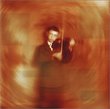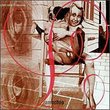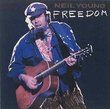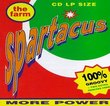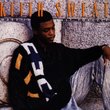| All Artists: Lambchop Title: How I Quit Smoking Members Wishing: 4 Total Copies: 0 Label: Merge Records Original Release Date: 1/30/1996 Release Date: 1/30/1996 Genres: Country, Alternative Rock, Pop, Rock Styles: Americana, Indie & Lo-Fi Number of Discs: 1 SwapaCD Credits: 1 UPC: 036172939725 |
Search - Lambchop :: How I Quit Smoking
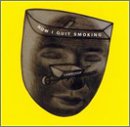 | Lambchop How I Quit Smoking Genres: Country, Alternative Rock, Pop, Rock
This post-punk jug band not only remembers when country wasn't cool, but revels in the era when folks like Glen Campbell and Bobbie Gentry ruled the pop charts. Mastermind Kurt Wagner uses pop-country as a jumping-off poin... more » |
Larger Image |
CD DetailsSynopsis
Amazon.com This post-punk jug band not only remembers when country wasn't cool, but revels in the era when folks like Glen Campbell and Bobbie Gentry ruled the pop charts. Mastermind Kurt Wagner uses pop-country as a jumping-off point for the skewed, sardonic observations about life in these post-postmodern times, delivered in his wry, half-spoken baritone. Wagner's characters have a decidedly pulp fiction feel about them- -particularly the ones sketched in "The Man Who Loved Beer" and "The Scary Caroler"--and his bandmates provide suitably sepia-toned landscapes for said eccentrics to play out their stories. The seamless manner in which the players make offbeat instrumentation-- heavy on the trombone, lap steel, and banjo--sound so natural and kitsch-free is the icing on the cake, and a guarantee that you needn't be a hipster to appreciate Lambchop. --David Sprague Similar CDs
Similarly Requested CDs
|
CD ReviewsVery Chilled KIWI79 | Auckland | 06/19/2006 (4 out of 5 stars) "It's taken me 10 years after hearing 'the man who loved beer' to finally pick up this album. I've always loved the comtemporary music with an earthy american feel or 'alt-country' as its sometimes pigeonholed this includes great bands such as Uncle Tupelo, Calexico, Drive by Truckers, Jayhawks, Whiskeytown. Lambchop belong in this company, on the more laid back side, but no less essential for this. It doesnt work immediatly, but then the best music never does. Once you are drawn into the atmospheric and laid back mood it takes you over. There is some fine songwriting and musicanship in there, and tracks like 'The scary Caroler' and 'The Man Who Loved Beer' are the real standouts. 4 stars - Don't want to bring the average down, but you can't give everything five stars. " Burt Bacarach meets Pere Ubu KIWI79 | 06/14/2001 (5 out of 5 stars) "Many bands require several albums to hone a distinctive sound. This fringe-country troupe, led by guitarist/singer Kurt Wagner, came out of the box fully developed--quiet back-porch melodies punctuated with jarring explosions of percussion, subtle steel guitar and trumpet, and soft-spoken vocals. On How I Quit Smoking (the bands second release) Wagner pumps the volume down even further. Musically, for the most part, quite normal sounding but the lyrics paint a different picture--demented character sketches dealing with all sort of obsessions. This is the band's most fully realized release--my biggest complaint about Lambchop is that some of the songs start to sound alike. Here there is a lot of variety. Compared to their entire catalog, this CD could be known as Lambchop's "psychedelic album." Great songs abound from start to finish, especially We Never Argue, All Smiles and Mariachi, Suzieju, Smuckers, and the stunning The Scarey Caroler. Absolutely essential." Cool country? liam sheppard | nottingham...not USA | 09/28/2001 (5 out of 5 stars) "I like chilled music and they don't come much more mellow than Lambchop! I first heard "the man who loved beer" about 4/5 years ago onthe radio and had to buy the album. It took me a while but I found it and was not disappointed by the rest of the tracks. Music to smoke to, and you don't have to like or listen to country to appreciate it as its much, much more than that. Just listen to it, see for yourself.(apparently in top 100 country albums of all time?)"
|

 Track Listings (14) - Disc #1
Track Listings (14) - Disc #1